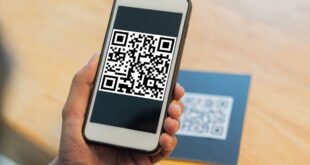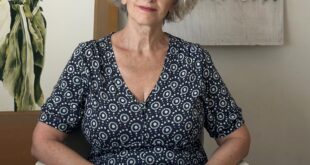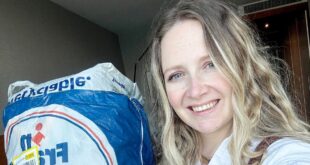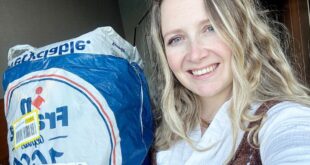The King’s 20-year-old niece wants to pursue a career in the military, which could make her the first female Royal since her late grandmother to do so.
Lady Louise Windsor, daughter of Prince Edward and Sophie and granddaughter to Queen Elizabeth II, has ‘fallen in love’ with army cadets, a source has said.
Lady Louise, who is eighth in line to the throne, is currently in her second year at the University of St Andrew’s studying English and has reportedly said on her LinkedIn page that she is interested in pursuing a career in ‘the military, diplomacy or law’.
A source told The Sun: ‘She talks about being very keen on a career in the military, serving the King and country.
‘She is all about the Army Cadets and has fallen in love with it.’
The young royal could follow in the footsteps of Queen Elizabeth II, who was a Junior Commander with the Auxiliary Territorial Service during the Second World War.
Young Elizabeth made history as the first royal woman to become a full-time member of the armed services, after she signed up for military service within a year of turning 18.
The late Queen signed up despite reports saying King George VI had ruled that her training as a princess outweighed the nation’s increasing manpower problems, and that she would not be joining any of the women’s auxiliaries or working in a factory.
Lady Louise Windsor , daughter of Prince Edward and Sophie and granddaughter to Queen Elizabeth II , has ‘fallen in love’ with army cadets, a source has said.

Louise, who is eighth in line to the throne, is currently in her second year at the University of St Andrew’s studying English and has reportedly said on her LinkedIn page that she is interested in pursuing a career in ‘the military, diplomacy or law’

The young royal could follow in the footsteps of Queen Elizabeth II (pictured) who was a Junior Commander with the Auxiliary Territorial Service during the Second World War

The late Queen signed up despite reports saying King George VI had ruled that her training as a princess outweighed the nation’s increasing manpower problems
The King and his wife Queen Elizabeth (later known as the Queen Mother) were determined that they would not be seen as hiding from the war, and so they visited areas that had been bombed during the Blitz.
They also visited military personnel, made trips to munitions factories, RAF bases and Royal Navy ships, and met with troops training for combat.
However, while the family had wanted to stay together at Buckingham Palace throughout the conflict, at the height of the Blitz in 1940, Princesses Elizabeth and Margaret were evacuated to Windsor Castle.
In September that year, five high explosive bombs were dropped on the Palace, but the King and Queen chose to stay there in solidarity with those living through the Blitz. In addition, the family was subject to the same rationing all everyone else.
Speaking about the bombing, the then-Queen Elizabeth was reported as saying: ‘I’m glad we have been bombed. Now we can look the East End in the eye.’
The Palace was bombed nine times during World War II.

Lady Louise Windsor speaking to her grandmother the late Queen Elizabeth II in 2018

Queen Elizabeth II wanted to do her bit to help the war effort, so joined the Auxiliary Territorial Service, enrolling on a driving and vehicle maintenance course

While undergoing her ATS training, the young royal was not given special treatment, and mixed with people from different backgrounds
While Queen Elizabeth remains the only female member of the Royal Family to serve in the Armed Forces, other members have played a part.
Prince William was commissioned into the Army in December 2006 and joined the Household Cavalry, while Prince Harry was the last royal to serve in a war during two tours of Afghanistan.
Prince Andrew served as a Royal Navy helicopter pilot in the Falklands War, Prince Edward trained with the Royal Marines in 1987 but left after four months.
And King Charles was in the Royal Air Force and the Royal Navy from 1971 to 1976.
Princess Elizabeth had her first royal duty during the Second World War. At the age of 14, on October 13, 1940, she made a radio broadcast from Windsor Castle.
Speaking during the BBC’s Children’s Hour, the princess urged child evacuees to have courage, despite the difficult circumstances.
She said: ‘Thousands of you in this country have had to leave your homes and be separated from your fathers and mothers.
‘My sister Margaret Rose and I feel so much for you, as we know from experience what it means to be away from those you love most of all.’

Lady Louise Windsor (pictured) watching a RAF flypast from the balcony of Buckingham Palace

Queen Elizabeth pictured in 1947 learning how to read a map in the Auxiliary Territorial Service

Prince Edward and Sophie with Lady Louise at the 2022 Commonwealth Games

Lady Louise has just finished her second year at the University of St Andrew’s

The Duke and Duchess of Edinburgh with Lady Louise (pictured centre)
In 1942, she became the Colonel of the Grenadier Guards in 1942, carrying out her first official public engagement on the morning of her 16th birthday, inspecting the guards at Windsor Castle.
Among her other appearances, she was snapped working on Windsor Castle allotments as part of the ‘Dig for Victory’ campaign.
At 18-years-old, she launched her first ship, HMS Vanguard, at Clydebank in Scotland. That year, as her father was in Italy, she carried out some of his head of state duties.
However, she wanted to do more to help the war effort, and although King George did not want her to join the women’s auxiliaries or work in a factory, within a year of her 18th birthday, in February 1945, she enlisted in the Auxiliary Territorial Service, the women’s branch of the British Army, known as the ATS.
During this time, women in the ATS carried out a number of jobs that would free men up for frontline duty.
As women were not allowed combat roles, instead, they would serve in other capacities. Among them, they would work as clerks drivers, postal workers, dispatch riders and ammunition inspectors.
Some members of the ATS work with anti aircraft units, tracking enemy aircrafts. Women were not allowed to fire guns, but they could aim anti aircraft guns for men to fire.
Princess Elizabeth enrolled on a driving and vehicle maintenance course, learning about mechanics theory, map reading, and how to drive and maintain heavy army vehicles.

A young Princess Elizabeth (pictured, left) is visited by her mother Queen Elizabeth during her ATS training

Queen Elizabeth II speaking to Lady Louise in 2015 at The Royal Windsor Horse Show

Princess Elizabeth learning basic car maintenance as a Second Subaltern in the A.T.S 12th April 1945

Lady Louise Windsor attends a National Service of Thanksgiving for the reign of Queen Elizabeth II at St Paul’s Cathedral on June 3, 2022
She received no special treatment during her training, and mixed with people from all backgrounds.
After working seven hours a day at the barracks, she returned home to Windsor Castle in the evenings.
The princess completed five months of training as a mechanic and military truck driving, and was promoted to the rank of Honorary Junior Commander.
During her training, there was huge public and media interest in her activities, and she was filmed and photographed as she learnt her craft. During this time, she was visited at the training camp by her parents and sister Princess Margaret.
Although she graduated as a fully qualified driver (undertaking a final test which involved her making a solo journey in a heavy vehicle from Surrey into London) WWII ended before she was able to put her new skills to practical use.
Seven years after WWII ended, Elizabeth became Queen.
Lady Louise is due to start her third year of studies at the University this year.
Source link



